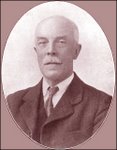In the end, Phil Chisnall's record is preserved - and given the tenacity which United displayed this time around, likely to last a good many years longer. But I don't think he'll be the answer to many quiz questions for quite a while - it's become much too easy a question.
Strange that no-one ever mentions how much longer it is since Liverpool sold anyone to United.
In the end, Liverpool's lawyers have been proved fallible (I hope it was the club paid them, not Gaby, for I doubt it was "no win, no fee"), Benitez makes a fool of himself, United are (apparently) paid more than they had any right to expect and Gaby is given the chance to take over from Roberto Carlos. And I don't imagine his agents will lose by the deal either, more's the pity.
So why does so much bitterness appear to linger? Gaby himself seems to have shrugged his shoulders, so I almost wonder if it was just a fight on principle, because he (or his agents) objected to being told what to do. Keano pointed out to Jaap Stam the unpalatable truth that footballers in the end are slabs of meat, but I fail to see why footballers are expected to like the fact and to fawn over the shopkeeper.
And, personally, I am also not at all clear why fans should expect a foreigner who has been in Manchester (or rather in the rich ghettos of Cheshire) for three years, to share their irrational hatred of a club down the road. Loyalty is a rare quality in the modern era; it can't be expected of many owners, directors or players and, frankly, not of all fans. SAF clearly defines "loyalty" as doing what he tells you to do. It is a personal relationship (rather like The Godfather). Perhaps Gaby grates because, for one season at least, there were fans who had the perception that he was different.
From what SAF has been saying since, that perception was probably largely illusory. If it hadn't been for the injury, it would have been obvious his "people" were wheedling to get him away years ago.
Ferguson told MUTV the player's agent was agitating for a move virtually as soon as he had arrived. "We signed Gaby in July 2004 and he immediately went off to play for the Argentina Olympic team, and then onto some World Cup qualifiers," he said. "We didn't get him until September, so in that first year he probably played about five months. At the start of the following season, a day before he suffered his cruciate injury against Villarreal, his agent came to see me and said he either wanted a transfer or for me to double his wages. That immediately sent out the wrong signal. Throughout his rehabilitation, his agent was asking me to sell him."
And in classic Ferguson-speak "You wonder whether the lad actually wants to play for you and in the end, you just give in."
That reminds me of the passage in The Godfather where Don Vito throws up his hands and says "but who can reason with this man", and the chap goes very pale and turns up in a New Jersey swamp a few weeks later.
The club shows the players little enough loyalty. When their time has gone, we unload them without a qualm. Even players who have been fans since they were children. The stories abound of the ruthlessness of Busby et al. He, in particular, had a fear of those he discarded coming back to haunt him. One player he sold commented that he liked to sell people "outside the Manchester Evening News circulation area".
The thing to do is celebrate the rare instances when loyalty is to be found, when players share in the irrational accumulation of desire that makes up United. The rarity is what gives it the value.
And in the end, to what are we giving the loyalty? Clubs have changed their names, their strips, wound up and re-formed, changed grounds. They have been bought and sold like slabs of meat themselves (sometimes by butchers - both literal and metaphorical butchers).
Norman Mailer in The Siege of Chicago tries to explain why Lyndon Johnson (and other US politixians) could never deal with Ho Chi Minh. "A good politician ... can deal with any kind of property-holder but a fanatic, because the fanatic is disembodied from his property. He conceives of his property - his noble ideal - as existing just as well without him. His magic partakes of the surreal."
Players, managers and owners may all prate about the club being "bigger than anyone",but they don't really mean it, don't feel it the same way, except in occasional instances. Their loyalty is the loyalty of cosa nostra and the shared backscratcher.
It is unfair to expect a player to be a fan. Only fans understand the magic that exists just as well without them.
Subscribe to:
Post Comments (Atom)


No comments:
Post a Comment